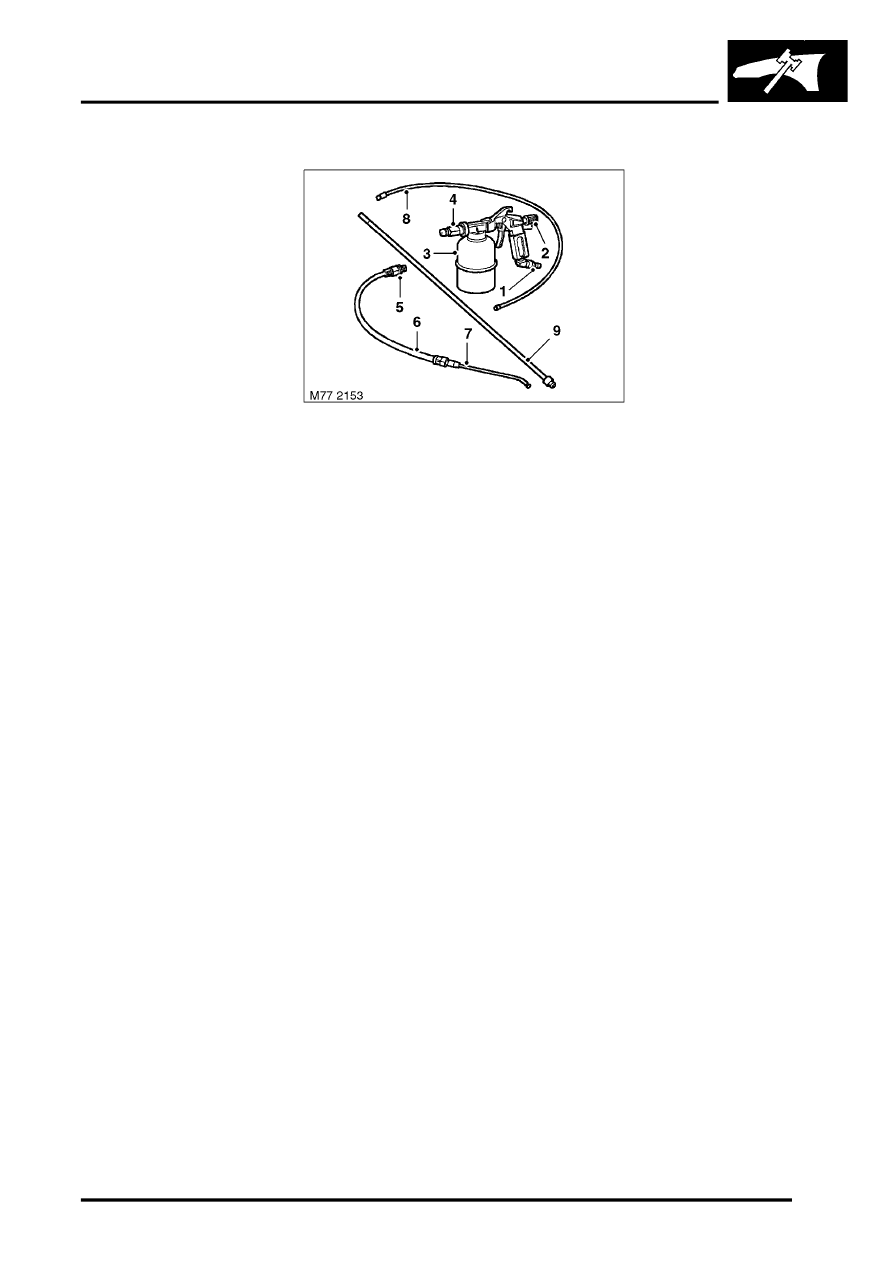Range Rover Service Procedures: Body Sealing Materials | Page 958

BODY SEALING MATERIALS
APPLICATION EQUIPMENT
-7
Cavity wax application equipment and techniques
1 Air inlet
2 Flow control (spray pattern adjustment)
3 Pressure cup (1 litre capacity). Maximum
pressure 140PSI (9.7 bar, 9.84kg/cm3)
4 Gun connector
5 Lance nipple connection
6 Flexible lance
7 Rigid directional hook wand (forward cone
spray pattern)
8 Flexible nylon lance (1100mm) with 360
°
spray
pattern
9 Rigid lance (1100mm) with 360
°
spray pattern
When re-treating wax-injected areas which have been disturbed during repairs, it is necessary to use a compressed
air spray gun with integral pressure cup and a selection of interchangeable lances.
The following points must be observed during use, according to the attachments fitted:
l
Use the rigid or flexible lance attachments with 360
°
spray dispersal when treating enclosed areas, to ensure
maximum coverage.
l
Where openings are restricted, use the hook nozzle to provide a more directional spray (e.g. inside narrow or
short box sections).
l
Spray exposed underbody surfaces directly from the gun less lance attachment and without disconnecting the
fluid coupling.
1100mm flexible nylon lance
This lance is similar in pattern to the rigid version, but provides the additional penetration required for curved sections
or in places where access is difficult. Its main limitation is a lack of positional accuracy inside box sections.
Carry out all spraying on the outward stroke of the lance. Withdraw the lance slowly to ensure sufficient coverage. Do
not withdraw the lance too quickly.
Ensure that the nylon tube of the lance is kept away from the edges of the access hole to eliminate abrasion and
extend the life of the tube. Take care to ensure that spraying ceases just before the nozzle emerges from the access
hole. To assist in this process paint the final 30mm of the nozzle with RED paint.
Hook nozzle on flexible lance
The rigid hook produces a highly atomised, forward-directed, fully conical spray pattern having long range and good
dispersion characteristics. This combination has good directional capabilities for treating short, narrow sections, and
may also be used for direct spraying of inner wheel arches etc.
In use, position the flat area at the end of the lance at 180
°
to the nozzle spray direction. This will help to guide the
spray more accurately when it is concealed in a box section or access hole.
